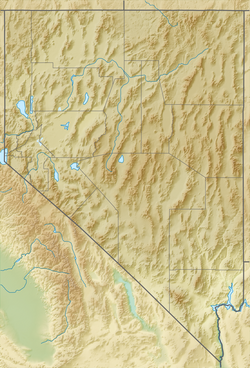| Granite Range | |
|---|---|
| Highest point | |
| Elevation | 2,365 m (7,759 ft) |
| Geography | |
| Country | United States |
| State | Nevada |
| Region | Black Rock Desert |
| District | Washoe County |
| Range coordinates | 40°44′28.644″N119°23′45.677″W / 40.74129000°N 119.39602139°W |
| Topo map | USGS Godeys Rock |
The Granite Range is a mountain range in Washoe County, Nevada, west of the town of Gerlach and the lower Black Rock Desert playa. [1]
Adjacent mountain ranges are the Fox Range and Calico Hills. Smoke Creek Desert is also near.

